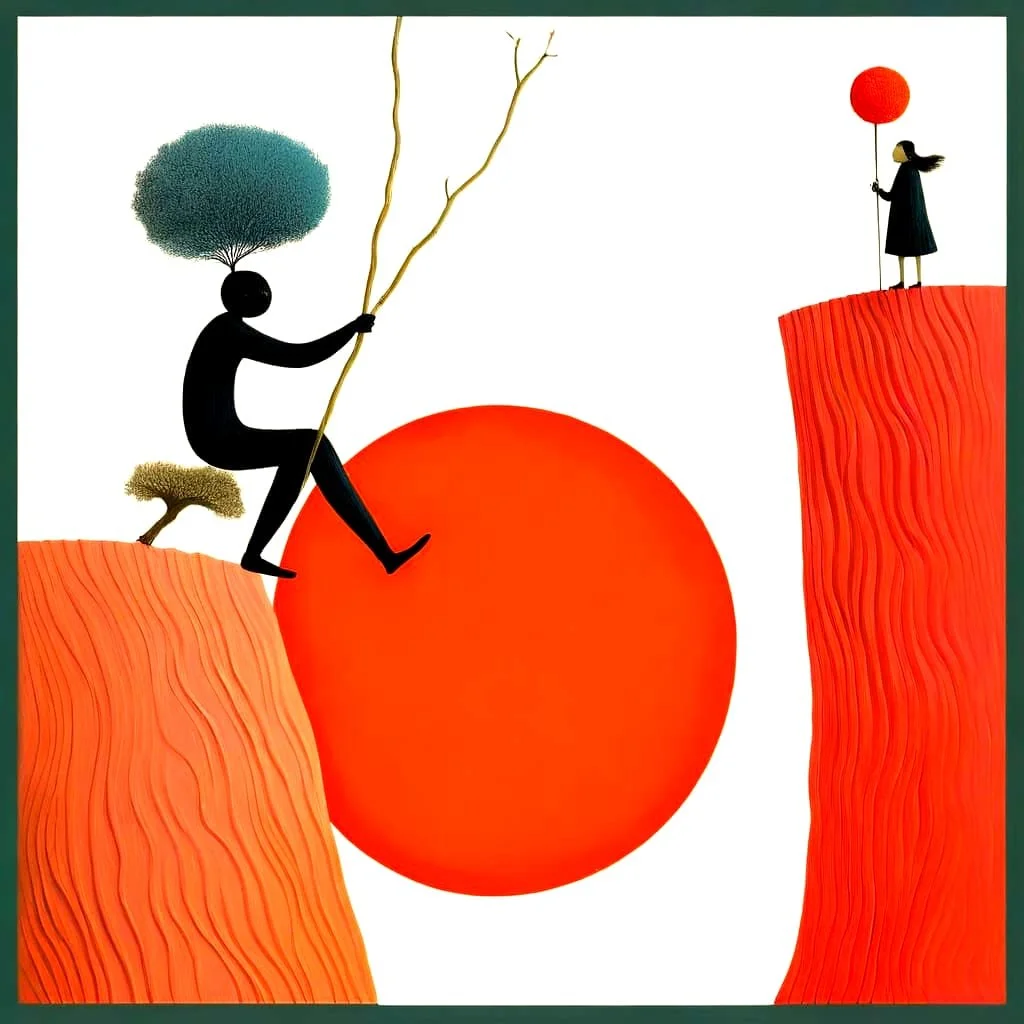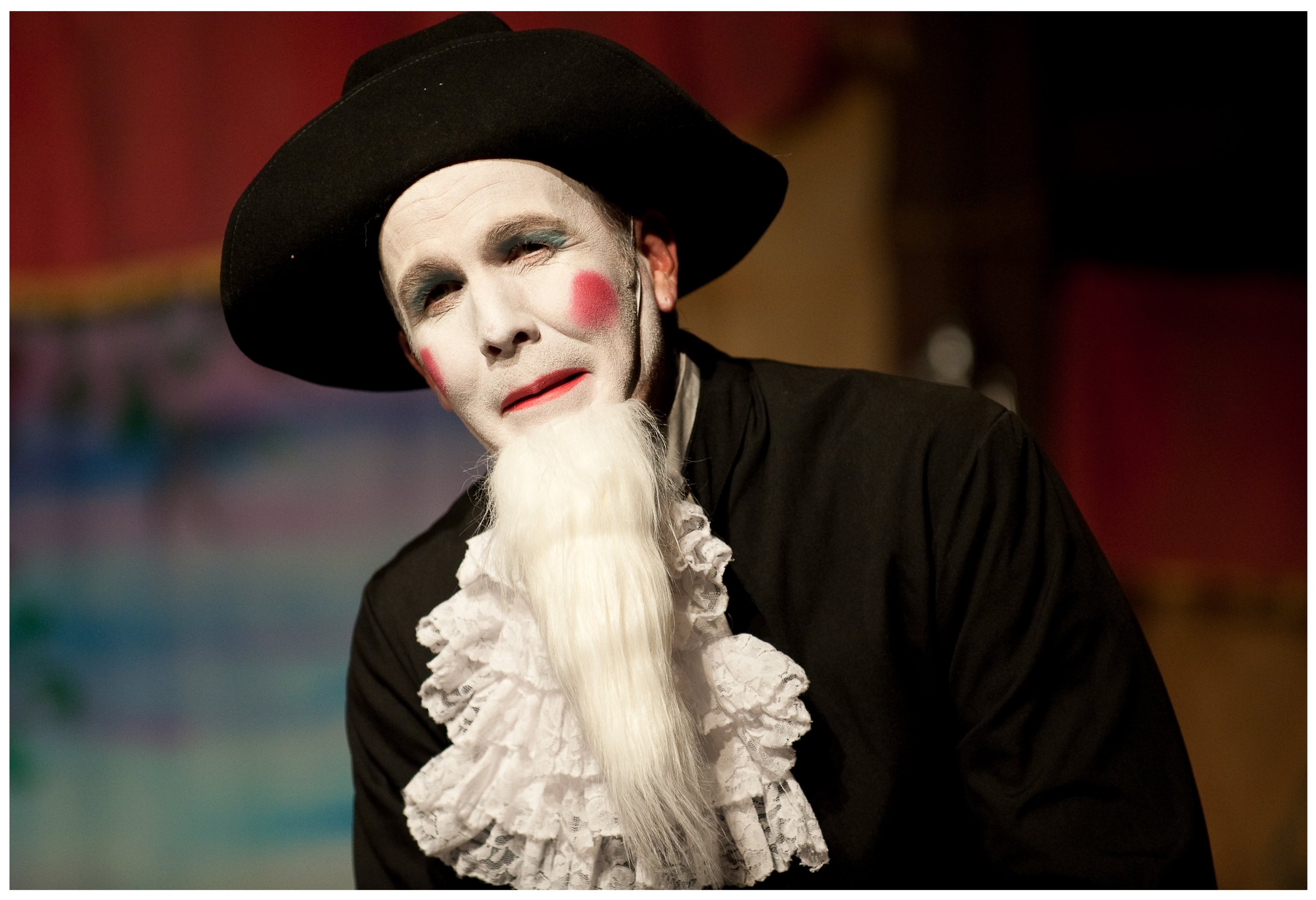
ProbabilisticStages
Rehearsing Uncertainty: A Performance Methodology for a Probabilistic World
For more than 2,500 years, theatre has been guided by Aristotelian poetics and, later, by Newtonian physics, both grounded in a deterministic worldview. Dramatic narratives have been built on fixed causality, where events unfold in a linear chain of cause and effect, mirroring Newtonian mechanics. In the last century, however, our understanding of reality has changed. Relativity and quantum mechanics have revealed a world that is fluid, probabilistic, and shaped by observation. Our artistic and theatrical tools have not fully responded to this shift.
ProbabilisticStages is a performance methodology that aligns theatre with the reality of uncertainty, adaptability, and emergence. It articulates two distinct but interconnected approaches to performance:TransPerformance: A harvesting process for creating new work (devised theatre) through probabilistic composition and performance tools. Pragmatics: A method for staging pre-existing plays (scripted theatre) probabilistically, so that each production can speak to the contemporary understanding of reality held by today’s audiences. Both approaches apply probabilistic thinking to theatre, moving away from fixed structures and rehearsed determinism toward emergent, responsive, real-time performance-making.
Key Principles of ProbabilisticStages
ProbabilisticStages is a performance methodology that transforms theatre from a deterministic, fixed structure into a probabilistic, adaptive, and emergent process. It applies to both devised theatre (TransPerformance) and scripted theatre (Pragmatics), embracing uncertainty, multiplicity, and responsiveness as fundamental aspects of performance.
1️⃣ Performance as a Probabilistic System
Traditional theatre follows fixed scripts, blocking, and character arcs, reflecting an Aristotelian/Newtonian cause-and-effect understanding of reality. ProbabilisticStages treats theatre as a living system, where elements exist in a state of superposition until they are realized in the moment of enactment. Theatre is no longer about repetition and determinism; it becomes an adaptive, ever-evolving process.
2️⃣ Uncertainty as a Creative Force
Despite our best efforts to plan, life unfolds unpredictably, and theatre should reflect this. Instead of avoiding uncertainty, ProbabilisticStages embraces it as a generative force. Meaning is not imposed but emerges dynamically from the interplay of actors, audience, movement, sound, space, and time. Performance is about navigating the unknown, not controlling the outcome.
3️⃣ The Actor as Observer & Creator
Just as quantum mechanics demonstrates that observation collapses probabilities into reality, actors in ProbabilisticStages are both observers and creators, shaping performance in real-time. Actors train to respond, adapt, and shift based on real-time variables rather than fixed, rehearsed choices.
4️⃣ TransPerformance: Creating Theatre from the Inner World
Creating devised theatre that emerges from subconscious exploration, using Inner World Harvesting Techniques like:
Active Imagination
Asemic Writing
Automatic Writing
Three Images Workshop
Image Theatre
The Panoramic Field: A dynamic, probable field where creative material is collected and meaning arises spatially rather than linearly.
Emergent Narrative: Performance unfolds probabilistically through movement, emotional shifts, actor choices, and audience engagement. Each performance is a unique expression of the same living field/system; no two are ever identical.
5️⃣ Pragmatics: Staging Text Probabilistically
Most written plays are deterministic, following fixed cause-and-effect sequences. Pragmatics transforms these plays into probabilistic performances by:
The Short Play Method – A 20-minute version of the play is staged early to give actors an immediate experiential understanding of the script’s field of possibilities.
Exploration – Actors break initial habits to discover multiple interpretations.
Mechanics – The text is experienced through its essential "whats", not emotional beats.
Fragmentation – Replaces Beats/Units, allowing text to remain part of a larger system rather than independent emotional moments.
Patterning – Replaces blocking, letting actors develop movement organically through performance patterns rather than fixed positions.
Staging as Superposition – Actors never settle on one action for each fragment but explore a range of possible actions, allowing meaning to collapse in the moment of performance based on relationships with other actors, space, text, and the audience.
Even deterministic, scripted plays can be performed probabilistically, mirroring how meaning in life is constantly shifting in real time.
6️⃣ Meaning is Not Fixed, It’s Emergent
In traditional theatre, meaning is pre-determined; a script is analyzed, a directorial vision is imposed, and actors interpret roles within a rigid framework.
In ProbabilisticStages, meaning does not exist beforehand; it unfolds through experience, presence, and interaction.
No two performances are the same because no two moments in life are the same.
7️⃣ The Audience as a Co-Creator
Traditional theatre assumes the audience is passive, merely observing a world that unfolds without their influence. ProbabilisticStages treats the audience as an active participant; their energy, reactions, and presence influence the event in real-time. There is no fourth wall.
There is no fourth wall; the performers are trained to register and respond to audience energy, making the performance an exchange.
8️⃣ Theatrical Space as a Fluid Dimension
In deterministic theatre, space is static, sets are fixed, blocking is mapped in advance, and movement follows a pre-planned sequence.
In ProbabilisticStages, space is an active relational element, shifting in response to actors, the audience, and emergent meaning.
Theatrical space is treated as a multidimensional field, not a static frame.
9️⃣ Training for Uncertainty: The Probabilistic Performer
Actors in deterministic theatre train for precision and repetition. In ProbabilisticStages, actors train for flexibility, responsiveness, and real-time decision-making.
Training Methods Include:
Navigating Emergent Spaces – Actors move dynamically, never repeating exact actions. Blocking is removed from the actor’s vocabulary because it implies finality—nothing is final in ProbabilisticStages or life.
Adaptive Vocal and Physical Work—Meaning shifts in real time based on the actors’ relationships with each other, the space, the text, and the audience.
Superposition Training – Actors rehearse multiple possible choices, remaining open to different outcomes in performance.
Precision is unnecessary—performance, like life, is messy.
Summary: The Paradigm Shift of ProbabilisticStages
Traditional Theatre (Deterministic):
Fixed scripts
Pre-determined blocking
Rehearsed and repeated choices
The audience is a passive observer
ProbabilisticStages (Adaptive):
Emergent storytelling
Responsive movement & spatial patterns
Real-time discovery of meaning
The audience as a co-creator
In a probabilistic world, theatre must be probabilistic
Introducing ProbabilisticStages
Productions
Performing Human Rights Initiative
ProbabilisticStages emerges as the next evolution of AtticRep, a professional theatre company with over 13 years of groundbreaking productions. More than just a name change, this transformation reflects a deeper commitment to reimagining performance, challenging traditional structures, and embracing new modes of theatrical expression.
Through years of experimentation, the company developed and refined the TransPerformance process, testing its impact on audiences across a diverse range of innovative projects. Now, as ProbabilisticStages, we continue to push the boundaries of theatre, integrating cutting-edge methodologies to redefine storytelling—where performance is no longer confined to a linear script but unfolds as a dynamic, emergent experience that mirrors the fluidity of reality itself.
The Generative and Harvesting Process of Pragmatics
The Pragmatics Process taps into the untapped emotive, visual, and imaginative resources of individual and collective inner worlds, shifting storytelling from fixed narratives to fluid, emergent fields of meaning shaped by relational experience and subconscious exploration.
This groundbreaking approach was refined through projects such as Guernika (1999), Pastiche (2005), 14 (2017), GAIA (2020), Virennu Facennu (2022), and Ma Solo 36. (2023) redefines theatre as a probabilistic space rather than a deterministic structure. TransPerformance merges Image and Forum Theatre, inspired by Augusto Boal’s Theatre of the Oppressed, with advanced methodologies that respond to the cognitive shift from the left to the right brain, from the eye to the ear, and from fixed meaning to relational meaning-making.
Through Active Imagination, Asemic Writing, Contact Improvisation, Image Theatre, and Directing Pragmatics, TransPerformance generates a multidimensional narrative ecosystem, mirroring the superpositional nature of reality as revealed by quantum mechanics and relativity theory. The Panoramic Field, infused with contributions from the ensemble, serves as a living archive, where text, movement, images, and soundscapes evolve in real-time, mirroring the observer effect in performance.
Here, narratives transcend linearity, unfolding as fluid landscapes shaped by the psychic terrain of individuals and ensembles. The Pragmatics Process does not merely break the boundaries of time and space in performance—it reshapes them entirely, presenting a new frontier for artistic and academic inquiry that aligns theatre with the way we now perceive reality through technology and contemporary physics.
Curious about what lies beyond traditional theatre and performance? ProbabilisticStages invites you to step into this uncharted terrain, where meaning is not dictated but continuously discovered.









